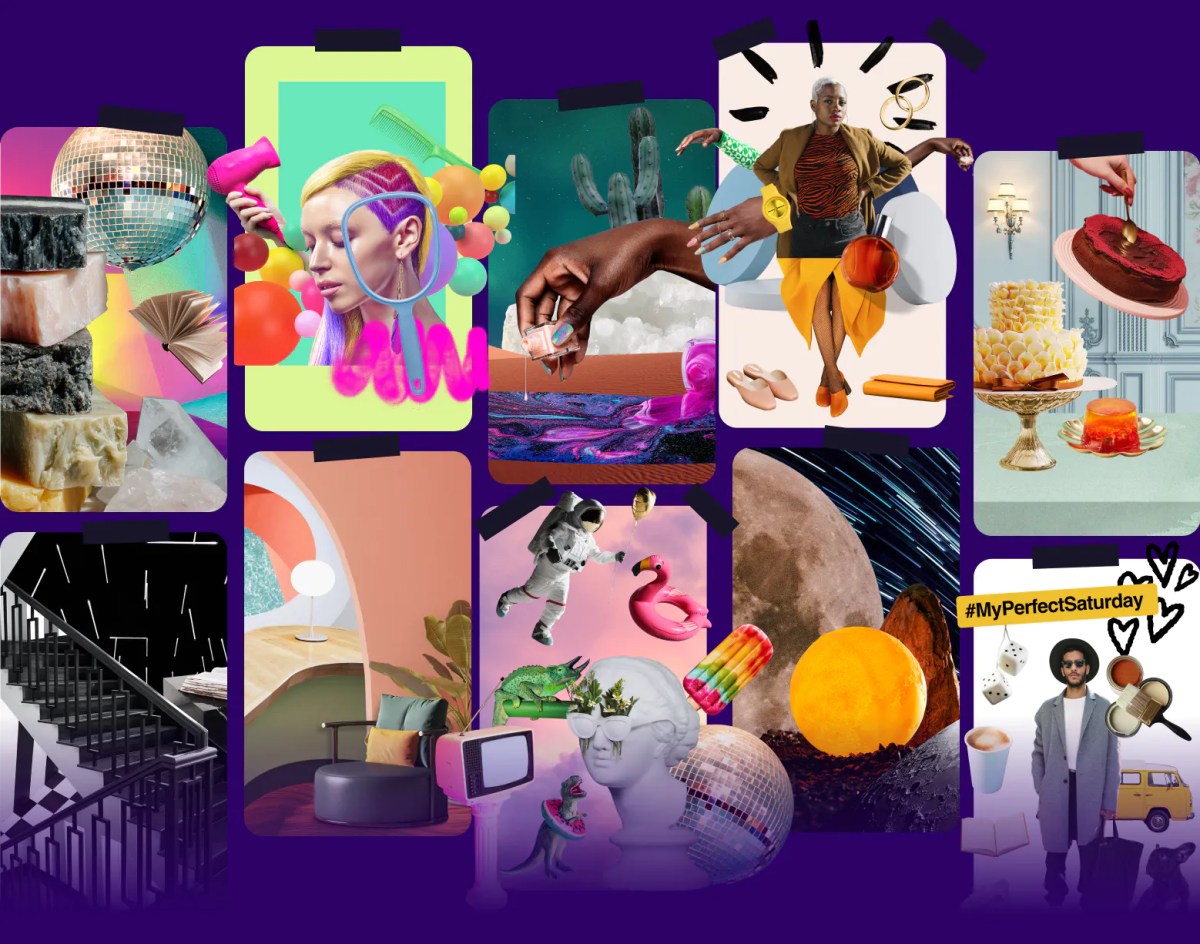The newer format allows users to curate content from around the web and from Pinterest combined with images they optionally snap using their phone’s camera to express their style, interests or tastes.
© 2024 TechCrunch. All rights reserved. For personal use only.
In the summer of 2022, Pinterest quietly launched a new iOS app called Shuffles that allowed people to put together collages using photos and image cutouts from its website. The app took off with Gen Z users, and the functionality later became integrated into Pinterest itself. Now the company says its collage feature, which is powered by AI and computer vision technologies, is seeing three times the engagement of its traditional Pins.
The newer format allows users to curate content from around the web and from Pinterest combined with images they optionally snap using their phone’s camera to express their style, interests or tastes. In the early days, users were making collages like mood boards or those dedicated to a particular interest, like a favorite pop star, then publishing them to TikTok where they were set to music.
But today’s Pinterest users are just as likely to create collages of style inspiration, like home décor or outfit ideas, similar to those you may have seen in the glossy pages of women’s fashion magazines in days past. Others are using collages to put together groups of favorite products, like skincare or makeup items they want to try. Most of the images are shoppable directly on Pinterest.
Image Credits: Pinterest
Though collages require more work than simply saving a pin to a Pinterest Board, the feature is picking up steam, the company told investors on its Q1 2024 earnings calls.
“Users are roughly three times more likely to save collage Pins versus other Pins on Pinterest, and a significant portion contain clickable products,” said CEO Bill Ready. “We’re also continuing to see collages gain traction with Gen Z, who are nearly 70% of collage creators. Furthermore, improving the actionability of Pins is another core tenet of improving user satisfaction, deepening engagement, and growing [monthly active users].”
Notably, the collages work because of their AI and computer-vision-powered design. Instead of simply saving a photo, like a .jpg or .png, to a Pinterest board alongside a link or note, an object from a photo can be identified and then “cut out,” the way that you can cut out a photo’s subject using a pair of scissors in the real world. This capability is similar to iOS’s image cutout feature that lets you do things like cut out your dog from a photo and then paste that cutout into an iMessage chat. But Pinterest’s use case for cutouts focuses more on getting people to curate groups of items that go together.
That human-led curation could also help to power Pinterest’s AI going forward, the company said.
As Ready explained, the AI-powered feature has a “flywheel effect of feeding us more and more granular signals that let us train our AI to do unique things that don’t occur on other platforms.” This, he says, will help Pinterest be more competitive as the AI race grows.
Driven by increased Gen Z usage — a demographic that’s now over 40% of Pinterest’s users — and a return of brand ad spend, Pinterest handily beat estimates in its Q1 2024 earnings. The company delivered its fastest revenue growth since 2021, CNBC noted, as the stock shot up. In the quarter, Pinterest pulled in revenue of $740 million, up 23% year-over-year, and EPS of 20 cents adjusted, above the 13 cents analysts expected.
Pinterest says it aims to better cater to its Gen Z user base, which is now, unusually, the fastest-growing demographic on its site.
“Pinterest is aging down — a rarity in consumer internet applications, which typically age up as they mature,” Ready said.

Leave a Reply